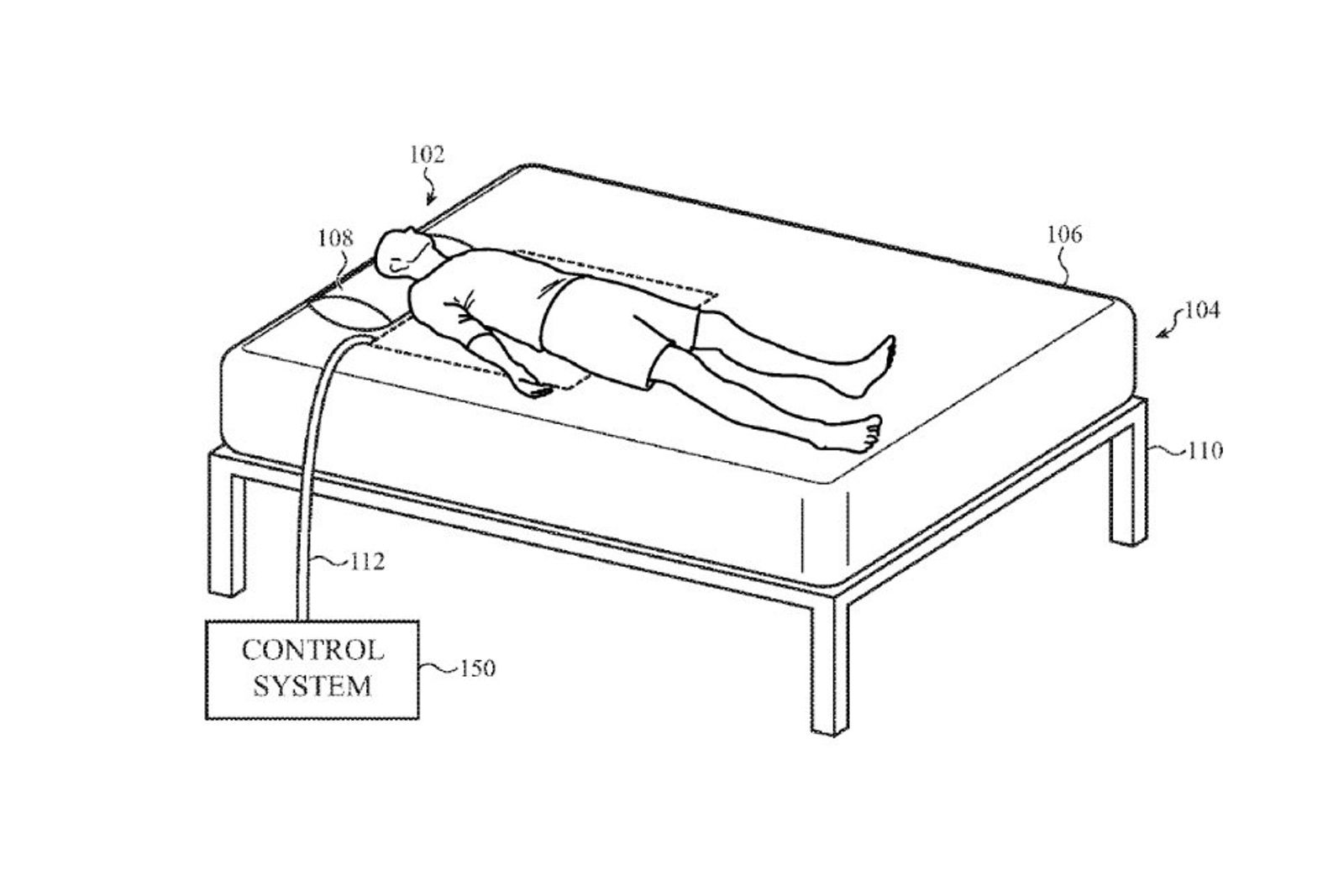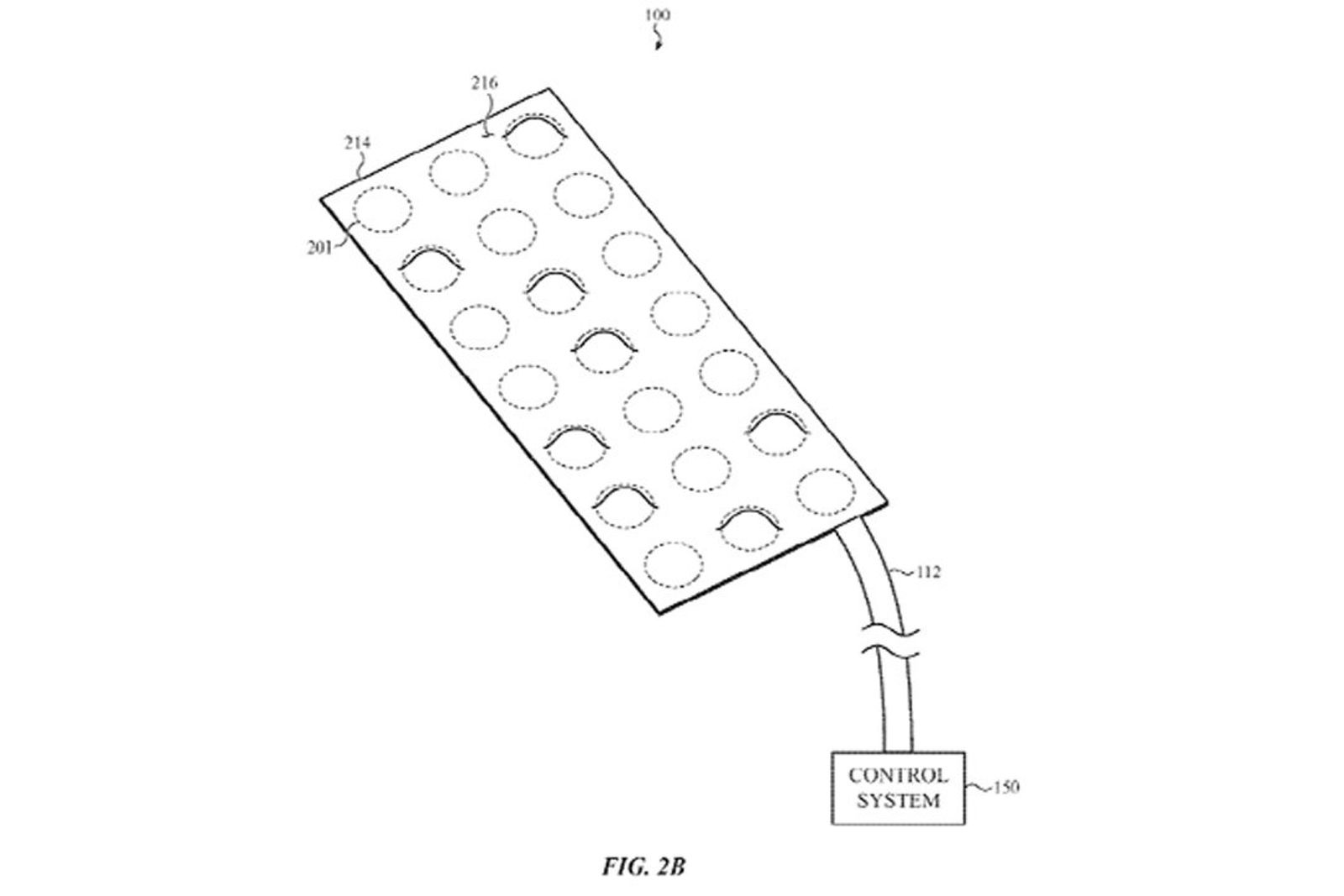Apple is exploring the possibility of a haptic feedback device that sits atop mattresses and helps the user relax and wake up.
In a new patent finding - first uncovered by AppleInsider - the Cupertino company appears to be researching the area, with the filing titled, 'Pneumatic Haptic Device Having Actuation Cells for Producing a Haptic Output over a Bed Mattress'.
In it, Apple details a bed-related device that could provide haptic feedback to users lying atop the mattress. In action, it would leverage inflated and deflated actuation cells to produce haptic pulses. The tech could even do so through the removal or introduction of "fluid", the patent states, which could comprise of air, liquid, gas or a combination of those elements.
It's also suggested within the filing that the haptic device would have to be thin and flexible, in order to not disturb the user, with applications that relate to helping a "user relax, to move and/or wake a user, to indicate outputs, alerts, or notifications at the in-bed haptic device or another electronic device".
Apple even ponders expanding the haptic system to work with trackers - ones that harness biometrics, force-sensing mechanics and light. This could potentially help the company identify complex sleep stats and habits, including time spent in a certain position or, say, snoring.
All in all, despite being a little unusual, such a device would be far from the worst idea. We're already seeing more expansive and less intrusive sleep tracking from the likes of Google, with the new Google Nest Hub, and Apple's 2017 acquisition of Beddit does suggest it's got a serious interest in the area.
As with any patent filing, though, it's important to keep things realistic. While Apple has made some concrete steps into sleep and mindfulness over the years - the latest being native Apple Watch sleep tracking - it feels unlikely an advanced, in-bed haptic device will appear any time soon.
Still, we can dream.


